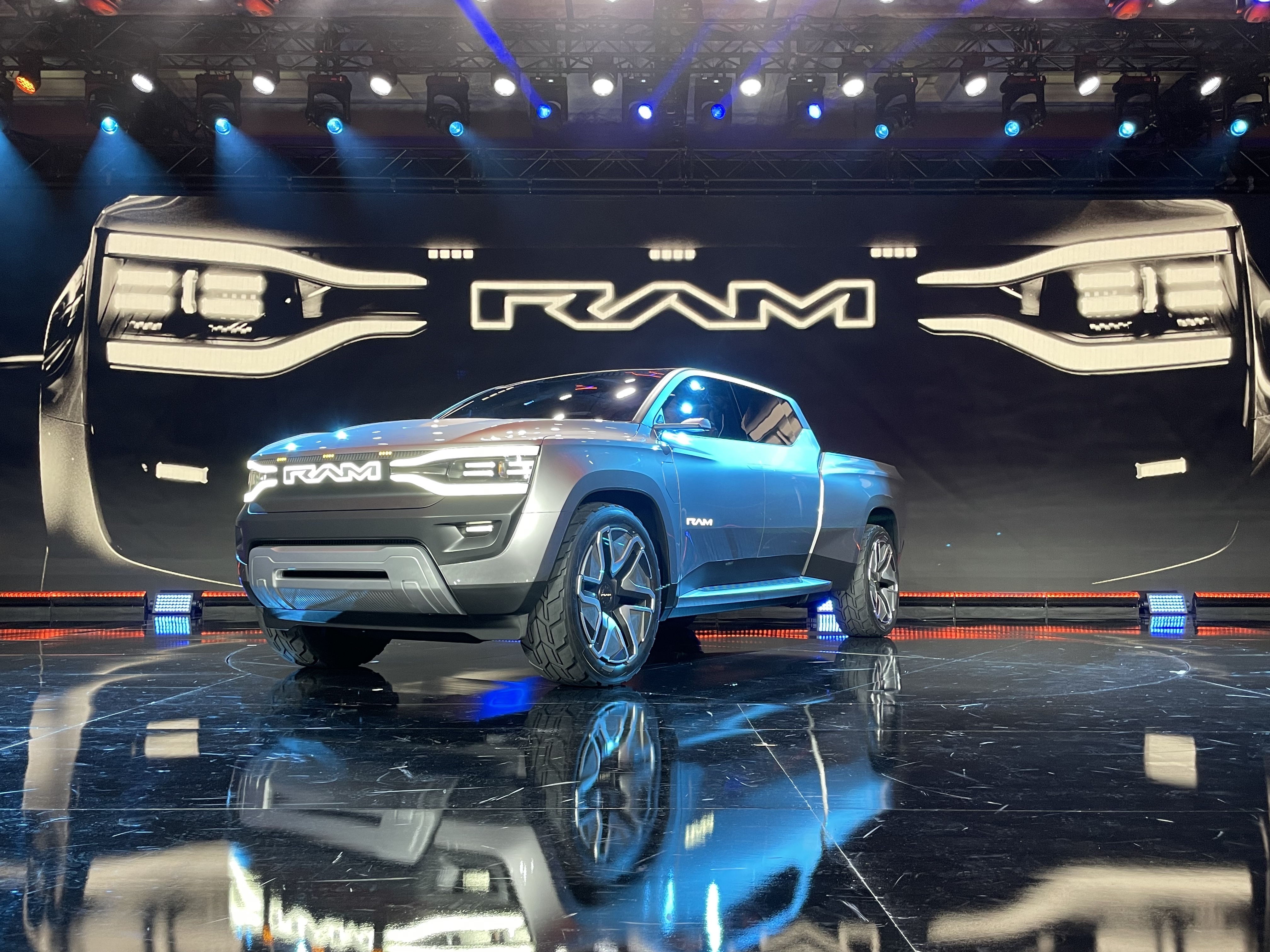
Ram Ends EV Pickup Truck Plans: What Does This Mean for the Future of Electric Trucks?
In a surprising turn of events, Ram has announced it is ending its electric pickup truck plans, as reported earlier this week. This decision raises questions about the future of electric trucks and the broader EV market. Let's dive into the details of this announcement, explore the reasons behind it, and consider the potential implications for consumers and the automotive industry.
Why Ram Pulled the Plug on Their EV Pickup
While Ram hasn't explicitly stated one single reason for abandoning their EV pickup truck project, industry analysts suggest several contributing factors. These likely include:
- Changing Market Conditions: The electric vehicle market is dynamic. Initial enthusiasm has been tempered by factors like charging infrastructure limitations, range anxiety, and overall cost. Ram might be reassessing the viability of an EV pickup in the face of these realities.
- Technological Advancements (or Lack Thereof): Battery technology is evolving rapidly. Ram may have determined that current battery technology doesn't yet allow for a competitive EV pickup truck that meets the performance and price expectations of their target customers. Achieving the desired range, towing capacity, and payload at a reasonable price point could be proving challenging.
- Production Costs: Manufacturing EVs, particularly large vehicles like pickup trucks, is expensive. The high cost of battery packs, specialized components, and retooling factories could be making the project economically unfeasible for Ram at this time.
- Competition: The electric truck market is becoming increasingly crowded, with established players like Ford (F-150 Lightning) and Rivian (R1T) already on the scene, and GM (Silverado EV) entering the race. Ram may have decided that competing in this space would be too difficult or not profitable enough.
- Shifting Consumer Preferences: While some consumers are eager to embrace electric trucks, others remain hesitant. Concerns about range, charging availability, and the overall reliability of EVs could be impacting demand. Ram might be responding to a shift in consumer sentiment.
In essence, Ram's decision is likely a complex calculation based on market analysis, technological limitations, cost considerations, and competitive pressures. It’s a strategic move, even if it’s disappointing to some EV enthusiasts.
Impact on the Electric Truck Market
Ram's departure from the electric pickup truck segment undoubtedly has implications for the wider market. Here are some key takeaways:
- Reduced Competition: With one less player, the remaining manufacturers will have slightly less competitive pressure. This could potentially lead to slower innovation or higher prices.
- Slower EV Adoption in the Truck Segment: Ram is a major player in the pickup truck market. Their absence could slow down the overall adoption rate of electric trucks, particularly among traditional truck buyers who are loyal to the Ram brand.
- Increased Scrutiny of EV Truck Viability: Ram's decision will likely lead to increased scrutiny of the economic viability of electric pickup trucks. Analysts and consumers will be watching closely to see how other manufacturers perform in this space.
- Opportunity for Other Manufacturers: Ram's exit creates an opportunity for other companies, particularly those already in the electric truck market, to gain market share and attract Ram customers who are interested in EVs.
What Does This Mean for Consumers?
For consumers, Ram's decision presents a mixed bag. On one hand, it means one fewer electric truck option to choose from. This could be disappointing for Ram truck enthusiasts who were eagerly awaiting an electric version. On the other hand, it could also lead to increased competition among the remaining manufacturers, potentially resulting in better products and lower prices in the long run. Ultimately, consumers interested in electric trucks will need to carefully weigh their options and consider factors like range, towing capacity, payload, price, and charging infrastructure availability.
The Future of Electric Trucks
Despite Ram's decision, the future of electric trucks is still promising. Other manufacturers are continuing to invest heavily in this segment, and battery technology is constantly improving. As charging infrastructure expands and EV technology matures, electric trucks are likely to become increasingly competitive and attractive to consumers. Furthermore, pressure from government regulations and environmental concerns will continue to drive the adoption of electric vehicles, including pickup trucks.
The key challenges that manufacturers face include:
- Improving Battery Technology: Increasing battery energy density, reducing charging times, and lowering battery costs are crucial for making electric trucks more competitive.
- Expanding Charging Infrastructure: A widespread and reliable charging network is essential for addressing range anxiety and making electric trucks practical for everyday use.
- Addressing Consumer Concerns: Manufacturers need to educate consumers about the benefits of electric trucks and address concerns about range, charging, and reliability.
- Managing Production Costs: Reducing the cost of manufacturing EVs, particularly battery packs, is critical for making electric trucks affordable for a wider range of consumers.
Long-Term Outlook
While Ram's decision is a setback, it doesn't necessarily signal the demise of the electric truck market. The automotive industry is constantly evolving, and manufacturers are continuously adapting to changing market conditions and technological advancements. It's possible that Ram will re-enter the electric truck market in the future, once battery technology has improved and the market has matured. In the meantime, other manufacturers will continue to push the boundaries of electric truck technology, paving the way for a more sustainable and efficient future of transportation. The development of the electric vehicle charging network is also a critical part of that future, helping assuage range concerns that might be holding some truck buyers back.
In conclusion, Ram's decision to end its EV pickup truck plans highlights the challenges and uncertainties surrounding the electric vehicle market. While this news may disappoint some, it also underscores the importance of ongoing innovation and adaptation in the automotive industry. The future of electric trucks remains bright, and it will be interesting to see how other manufacturers respond to this development.